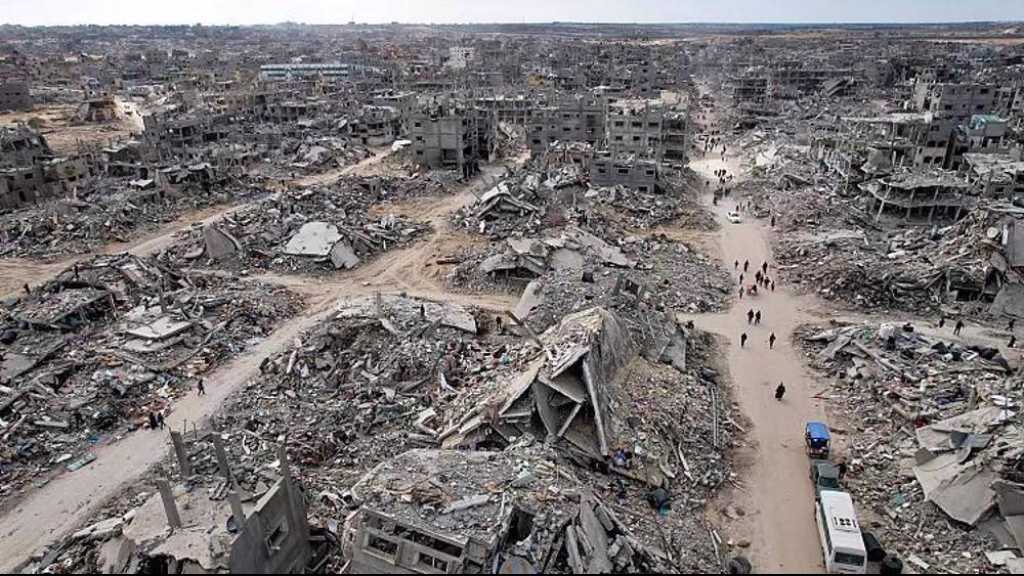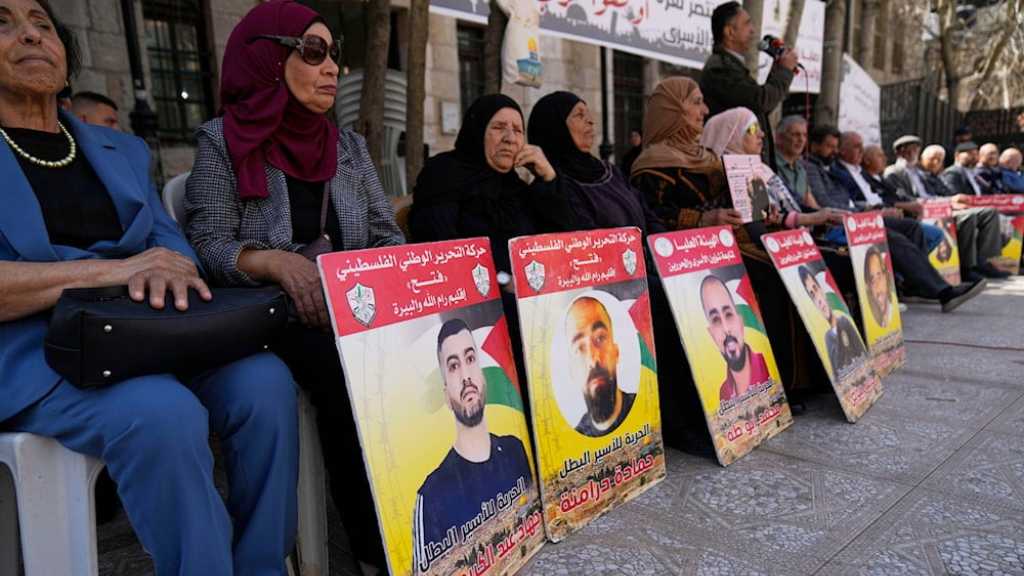"Israel" Needs to Talk to Hamas to Halt Rockets

Source: Al-Manar TV, 3-3-2008
"Israel" is likely to launch more deadly assaults on the Gaza Strip before it realizes that it is an ineffective strategy for ending rocket attacks by resistance fighters, analysts warned on Monday, with one saying the Jewish state was acting like a "blind Goliath".
The escalation of violence that erupted last Wednesday left more than 30 children among the 120 Palestinian dead, prompting the Palestinian leadership to break off contacts and drawing a chorus of international criticism against "Israel". But even though the onslaught failed to halt the rocket fire with two more striking the city of Asheklon on Monday, analysts predicted that the "Israeli" government would launch more such offensives before realizing that talks with Gaza's Hamas masters were the only answer.
Former top military intelligence official Yaakov Amidror said the government appeared determined "to demonstrate to the population of Gaza, to Hamas and to the world that if there is no other choice, there will be an even deadlier operation".
"One must therefore expect more operations until the government understands this doesn't work," said Amidror, an army reserve general. Only then will the government realize that ultimately there are only two alternatives - a full-scale re-occupation of Gaza, or talks with the Islamic movement, he said.
Menachem Klein, a Middle East expert at Tel Aviv's Bar Ilan university, said the weekend's deadly air and ground incursion was a symptom of "Israel's" frustration at its inability to halt the persistent rocket fire that has killed 14 "Israeli" civilians since September 2000.
""Israel" is behaving like a blind Goliath who strikes hard without a political objective," he said. "The rocket fire exposes its weakness. Offended, it hits out. This is an erroneous concept, void of any strategic thought and which leads nowhere. It demonstrated once again that "Israel" does not understand Palestinians," said Klein, who believes nonetheless that "another operation like this could take place very soon."
Fellow Middle East expert Emmanuel Sivan said it was time for "Israel" to end its boycott with Hamas and negotiate a reciprocal ceasefire. "The only solution is to negotiate with Hamas, but not a peace agreement, which is impossible considering that movement's views, but a ceasefire that is in both parties' interest," he told "Israel's" privately run Channel 10 television.
The former head of army planning, Shlomo Brom, also predicted more deadly assaults on Gaza but he too agreed that they would have to be accompanied by negotiations with Hamas if it was to stop the rocket fire. "There are other operations to come in order to exercise pressure on Hamas and induce them to stop firing rockets against "Israel"," he said. "It is an approach that can work on condition there is also a political objective. That means talking with Hamas - not necessarily a direct dialogue but contacts through a third party - in order to achieve a ceasefire."
It is an approach that opinion polls suggest has the backing of many "Israeli"s. A survey published by the "Israeli" daily Haaretz last week found that 64 percent of respondents believe "Israel" should hold direct talks with Hamas.
But "Israeli" Prime Minister Ehud Olmert remained firmly wedded to a military strategy on Monday. "We are still in the midst of the battle and this is not a one-off," a senior official quoted him as saying. "Everything is possible... air strikes, ground strikes and special operations are all being discussed."
"Israel" is likely to launch more deadly assaults on the Gaza Strip before it realizes that it is an ineffective strategy for ending rocket attacks by resistance fighters, analysts warned on Monday, with one saying the Jewish state was acting like a "blind Goliath".
The escalation of violence that erupted last Wednesday left more than 30 children among the 120 Palestinian dead, prompting the Palestinian leadership to break off contacts and drawing a chorus of international criticism against "Israel". But even though the onslaught failed to halt the rocket fire with two more striking the city of Asheklon on Monday, analysts predicted that the "Israeli" government would launch more such offensives before realizing that talks with Gaza's Hamas masters were the only answer.
Former top military intelligence official Yaakov Amidror said the government appeared determined "to demonstrate to the population of Gaza, to Hamas and to the world that if there is no other choice, there will be an even deadlier operation".
"One must therefore expect more operations until the government understands this doesn't work," said Amidror, an army reserve general. Only then will the government realize that ultimately there are only two alternatives - a full-scale re-occupation of Gaza, or talks with the Islamic movement, he said.
Menachem Klein, a Middle East expert at Tel Aviv's Bar Ilan university, said the weekend's deadly air and ground incursion was a symptom of "Israel's" frustration at its inability to halt the persistent rocket fire that has killed 14 "Israeli" civilians since September 2000.
""Israel" is behaving like a blind Goliath who strikes hard without a political objective," he said. "The rocket fire exposes its weakness. Offended, it hits out. This is an erroneous concept, void of any strategic thought and which leads nowhere. It demonstrated once again that "Israel" does not understand Palestinians," said Klein, who believes nonetheless that "another operation like this could take place very soon."
Fellow Middle East expert Emmanuel Sivan said it was time for "Israel" to end its boycott with Hamas and negotiate a reciprocal ceasefire. "The only solution is to negotiate with Hamas, but not a peace agreement, which is impossible considering that movement's views, but a ceasefire that is in both parties' interest," he told "Israel's" privately run Channel 10 television.
The former head of army planning, Shlomo Brom, also predicted more deadly assaults on Gaza but he too agreed that they would have to be accompanied by negotiations with Hamas if it was to stop the rocket fire. "There are other operations to come in order to exercise pressure on Hamas and induce them to stop firing rockets against "Israel"," he said. "It is an approach that can work on condition there is also a political objective. That means talking with Hamas - not necessarily a direct dialogue but contacts through a third party - in order to achieve a ceasefire."
It is an approach that opinion polls suggest has the backing of many "Israeli"s. A survey published by the "Israeli" daily Haaretz last week found that 64 percent of respondents believe "Israel" should hold direct talks with Hamas.
But "Israeli" Prime Minister Ehud Olmert remained firmly wedded to a military strategy on Monday. "We are still in the midst of the battle and this is not a one-off," a senior official quoted him as saying. "Everything is possible... air strikes, ground strikes and special operations are all being discussed."
- Related News




